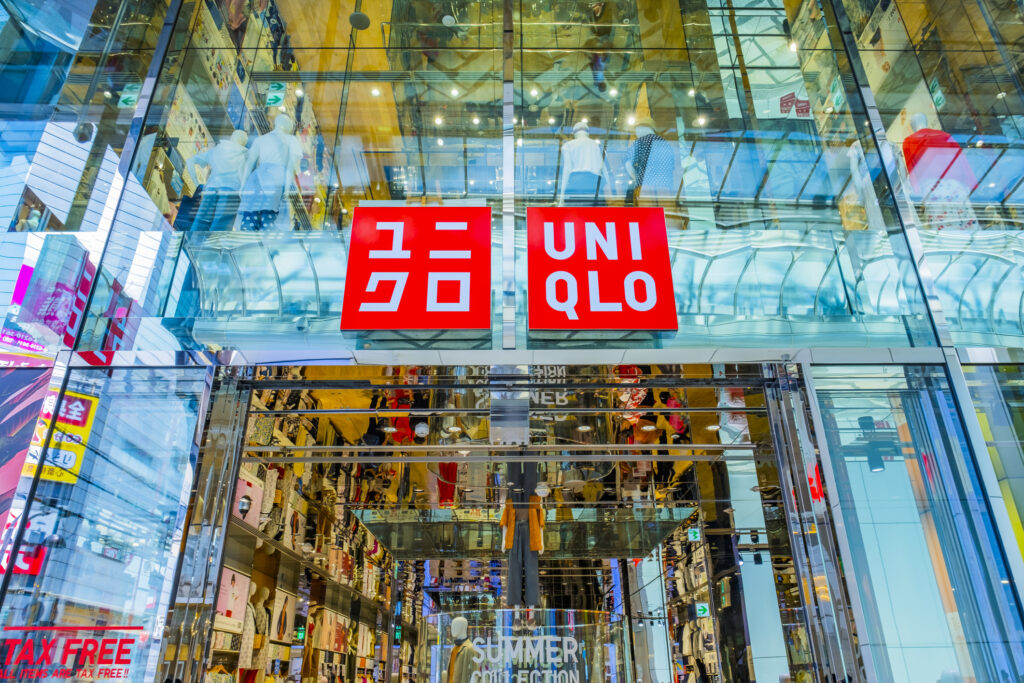
Last October, UNIQLO, a clothing retailer from Japan, introduced its very first pop-up store specializing in secondhand items in Harajuku, Tokyo. This move aligns with the company’s commitment to combat waste in the fashion industry. The temporary shop was open from Oct. 11 through Oct. 22 and offered a unique selection of 400 to 500 pre-owned pieces ranging from cozy sweaters to stylish pants, meticulously collected from UNIQLO patrons.
These garments weren’t just thrown on racks; some were rejuvenated with fresh dyes, giving them a new lease on life. And the prices were great, too — approximately one-third the cost of new items. For instance, cashmere knits went for 3,000 yen (around $20) at the time.
The initiative received positive feedback, with one 21-year-old local expressing delight over the opportunity to score quality clothing at budget-friendly prices.
This eco-conscious move isn’t new for UNIQLO. The company has been actively promoting sustainability since 2001 when it started collecting and recycling used fleece items. By 2006, this effort expanded to cover all of its products. Additionally, in 2021, it introduced a clothing repair service, now available in 33 stores across 14 countries and regions.
Its recycling program accepts “secondhand UNIQLO clothes in stores for reuse and [delivers] them to people in need worldwide in the form of emergency clothing aid for refugee camps and disaster areas together with the United Nations Refugee Agency (UNHCR), NGOs, and NPO. Clothing that cannot be reused is recycled as fuel or soundproofing material.”
Additionally, UNIQLO announced on its site that it will be adding “UNIQLO Upcycled” to its sustainability initiatives as of Feb. 28. “We are giving clothing a second life through upcycling,” the announcement states. “Created by expert upcyclers, Sho Konishi from New York City and Sean Lequang from Los Angeles, unsellable items are transformed into stylish, one-of-a-kind pieces available for purchase today.”
UNIQLO’s Plans To Double Stores in North America During 2024
UNIQLO also announced plans to accelerate its growth in North America in 2024 by opening over 20 new stores across the U.S. and Canada, focusing on eastern and western regions, including new markets. This expansion aims to double the number of store openings from the previous year. UNIQLO, known for its innovative LifeWear clothing, aims to provide a unique guest experience, offering simple, high-quality apparel designed to improve daily life.
In a press release, Daisuke Tsukagoshi, CEO of UNIQLO North America, said, “Stores are the heartbeat of our business, where we can engage with our local communities, hear directly from our customers, and best understand their needs to continue to improve and perfect our products. We’re looking forward to a big year ahead.”
The company has reported significant growth in North America and anticipates continued success in 2024, with plans for double-digit sales growth in existing stores. Recent viral products and designer collaborations have boosted UNIQLO’s global popularity, reinforcing its commitment to enhancing customer connections. New stores are set to open in various locations in Spring 2024, including Tacoma, Lynnwood, Braintree, Providence (a new market), Staten Island, Toronto, Calgary, and Ottawa.
Inside UNIQLO’s Transparent Supply Chain
Fast Retailing, the company behind UNIQLO, is shedding light on its entire supply chain, a move aimed at meeting demands for greater transparency in the fashion industry.
For its popular cashmere winter wear, Fast Retailing has been meticulously inspecting cashmere goat farms since 2019, ensuring the welfare of the animals. Satellite data, obtained through a partnership with the University of the Ryukyus, further aids in assessing farms’ impacts on the environment.
Since last year, the retailer has mapped out its entire supplier network for each garment, tracing back to the raw materials. This complex process involves multiple stages and countries, making supply chain management particularly challenging.
Fast Retailing’s approach involves consolidating supplier factories, aiming to reduce transaction complexities and improve quality. This consolidation has already begun, with over 670 factories brought under Fast Retailing’s direct supervision as of September 2023. The company’s focus on transparency extends to its sales and production coordination, allowing it to minimize waste and maintain high profit margins.
Looking ahead, Fast Retailing plans to localize production to shorten lead times and align with regional demand. This strategy, already implemented in countries like Indonesia and Vietnam, aims to streamline operations while complying with evolving environmental regulations, such as the EU’s proposed digital product passport system.
In response to consumer demand for more information, Fast Retailing has started disclosing manufacturing locations and the proportion of recycled materials used in its products on its websites. By providing consumers with greater insight into its supply chain practices, Fast Retailing aims to build trust and empower customers to make informed choices, all while maintaining its commitment to quality and sustainability.
